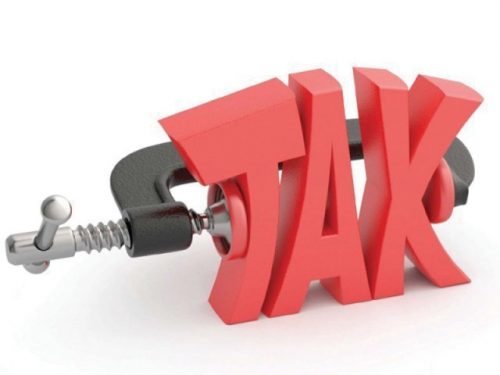
Consumers and companies paid N3.9tn tax to the government in the first nine months of this year, data from the National Bureau of Statistics have shown.
The taxes which were in form of Value Added Tax and Company Income Tax were 36.84 per cent higher than the N2.85tn that was paid in the corresponding period of 2021.
In 2022, the total CIT paid in nine was N2.08tn and the total VAT paid was N1.81tn.
According to the Federal Inland Revenue Service, CIT is a 30 per cent tax imposed on the profit of companies.
VAT is a 7.5 per cent consumption tax paid when goods are purchased and services rendered and borne by the final consumer.
Based on the NBS, the top three sectors that contribute to local CIT were manufacturing, information and communication, and financial and insurance.
For VAT, the sectors are manufacturing, information and communication, and mining and quarrying.
Commenting on the CIT contribution in Q3, the NBS said, “On the aggregate, CIT for Q3 2022 was reported at N810.19bn, indicating a growth rate of 13.41 per cent on a quarter-on-quarter basis from N714.40bn in Q2 2022. Local payments received were N483.17bn, while Foreign CIT Payment contributed N327.02bn in Q3 2022.”
It added, “In terms of sectoral contributions, the top three largest shares in Q3 2022 were manufacturing with 28.76 per cent; information and communication with 27.31 per cent; and financial and insurance with 8.81 per cent.”
Speaking on VAT, it said, “On the aggregate, VAT for Q3 2022 was reported at N625.39bn, showing a growth rate of 4.21 per cent on a quarter-on-quarter basis from N600.15bn in Q2 2022. Local payments recorded were N367.93bn, foreign VAT payments were N121.85bn, while import VAT contributed N135.61bn in Q3 2022.”
It added, “In terms of sectoral contributions, the top three largest shares in Q3 2022 were manufacturing with 31.08 per cent; information and communication with 18.52 per cent; and mining and quarrying with 10.95 per cent.”
Recently, the Federal Government disclosed that since non-oil revenues were more stable than oil revenue, it intended to improve its non-oil revenue receipts by improving and expanding tax administrations.
It stated this in its ‘Public Presentation of 2023 FGN Budget Proposal — Breakdown and Highlights’ report, saying, “In addition, the tax system will be further strengthened over the medium term by improving collection efficiency, enhancing compliance, and reorganising the business practices of revenue agencies as well as employing appropriate technology.
“Furthermore, efforts will be made to bring more businesses in the informal sector into the tax net.”
In an earlier interview with The PUNCH, the Deputy-President of the Lagos Chamber of Commerce, Dr Gabriel Idahosa, attributed the growth of CIT to the resumption of business activities.
He said, “These include hotels, airlines, restaurants, event centres, and other operators in the hospitality and tourism sectors of the economy. It also reflects a return to full operations of other sectors of the economy that were only doing very low levels of their normal capacity during the COVID period.”
He had also argued that the country’s VAT income was lower than it out ought to be if it had a proper tax administration.
Idahosa said, “We are collecting very little VAT. VAT ought to be collected from every business activity in Nigeria except for those products that are not “VATable” like food and healthcare.
“Every trader in Mushin, Oshodi or Balogun Market, Onitsha Market, and all the markets in Nigeria are supposed to be paying VAT. Right now, it is only the structured organisations that are paying.
“That is why the finance people talk about the taxable income, addressable tax. The tax coverage of Nigeria is far lower than what should be covered. If we invest in expanding that dragnet of taxable businesses, then we would be making more trillions of naira through VAT.”
Article first published on the Punch Website
Be the first to comment